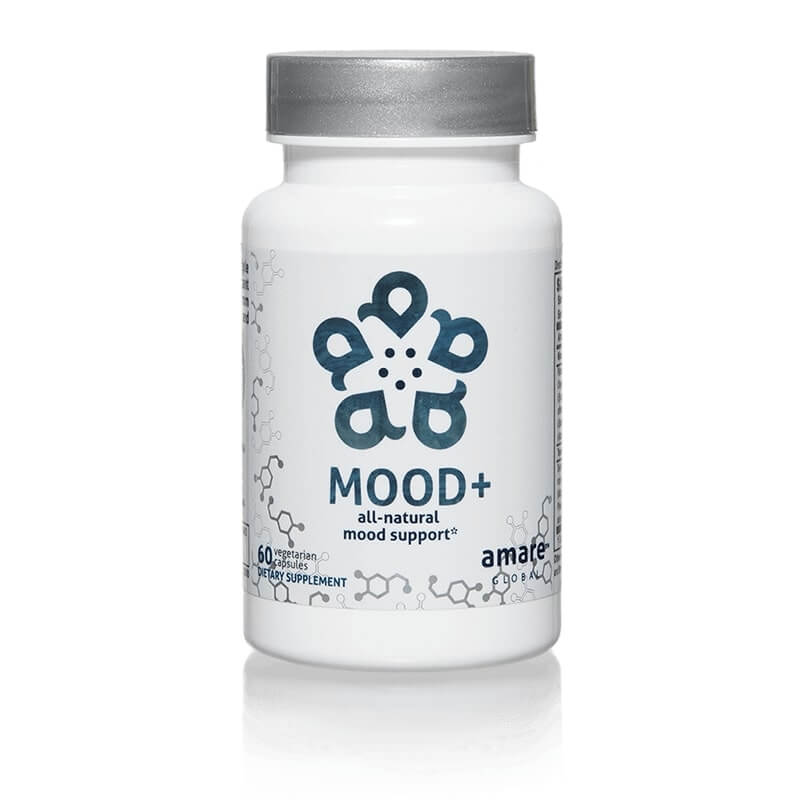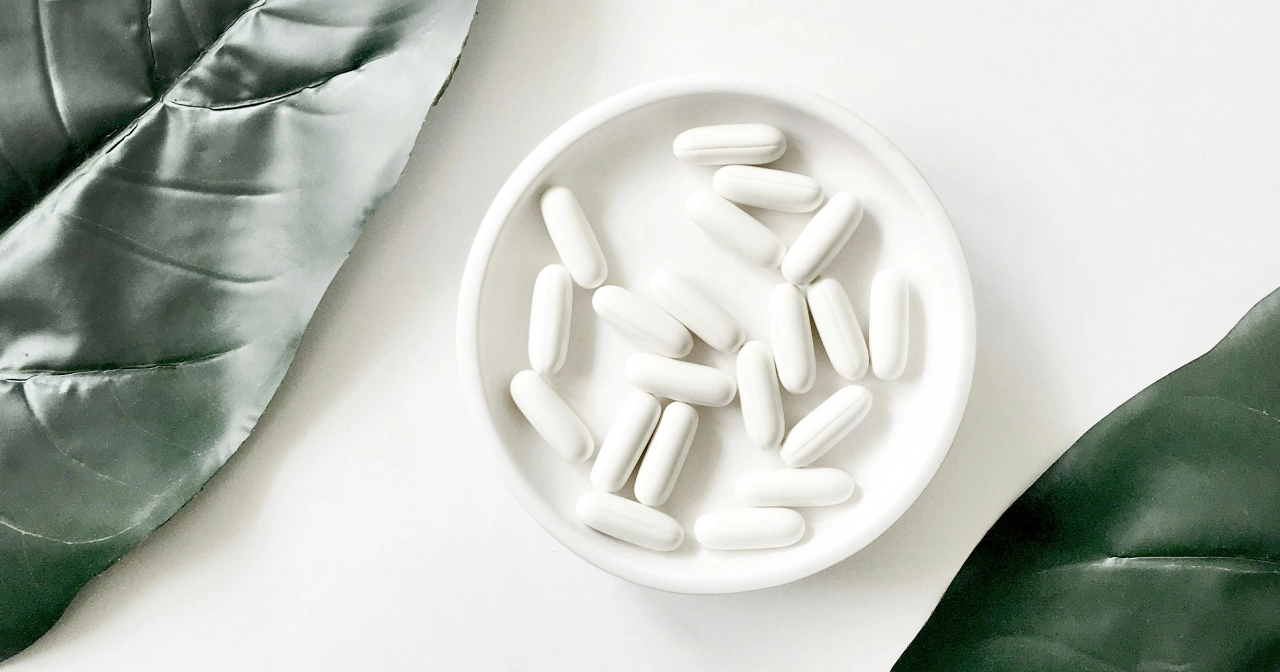All of us face heightened levels of stress today. And it’s not just hard on your brain. It’s bad for your body, too. In fact, it’s one of the leading causes of belly fat. Fortunately, there are ways to fix the problem, which is why we’ll cover the best supplements to reduce cortisol and belly fat here.
Though you might not escape all sources of stress, the right supplements can make it easier for your body to handle the stress you face. Of course, they work best when paired with the right nutrition, exercise, and lifestyle program. But if these supplements can help you head in the right direction, you might be more inclined to stick with your diet and exercise program. Let’s get into it.

Try Mood+
Mood+ is an advanced, all-natural mood support product that addresses anxiousness, sadness, and restlessness. It includes Sensoril® Ashwagandha, Kanna, Rafuma, and Relora®. Key ingredients in the formula have been clinically shown to:
- Decrease feelings of anger by 42%
- Decrease feelings of sadness by 20%
- Reduce stress-related symptoms by 70%
The Cortisol-Belly Fat Connection
Cortisol, often referred to as the ‘stress hormone’, plays a significant role in various bodily functions, including metabolism and the immune response. However, chronic stress can lead to persistently high levels of cortisol, which in turn can contribute to the accumulation and retention of belly fat, or visceral fat. This fat is not only a cosmetic concern but also poses serious health risks, as it is associated with metabolic syndrome, heart disease, and other health issues.
Cortisol plays a crucial role in various bodily functions, including regulating metabolism and immune response. However, when stress persists, cortisol levels rise, leading to an increased appetite for high-calorie, sugary, and fatty foods. This excess cortisol can contribute to an increase in abdominal fat.1Daubenmier J, Kristeller J, Hecht FM, et al. Mindfulness Intervention for Stress Eating to Reduce Cortisol and Abdominal Fat among Overweight and Obese Women: An Exploratory Randomized Controlled Study. J Obes. 2011;2011:651936. doi:10.1155/2011/651936
While the relationship between cortisol and obesity is complex and not entirely understood, some studies have found a link between elevated cortisol concentrations and increased abdominal fat. However, it’s important to note that other studies have found inconsistent relationships between cortisol and metabolic parameters.2Abraham SB, Rubino D, Sinaii N, Ramsey S, Nieman LK. Cortisol, obesity, and the metabolic syndrome: a cross-sectional study of obese subjects and review of the literature. Obesity (Silver Spring). 2013;21(1):E105-E117. doi:10.1002/oby.20083
Read also: Visceral Fat: How to Lower Belly Fat with Diet, Lifestyle, and Supplements.
Supplements to Reduce Cortisol and Belly Fat
Several supplements have been identified as potentially beneficial in reducing cortisol levels and aiding in weight management. Here are some of the most promising ones:
- Ashwagandha: An adaptogen that helps the body manage stress. Studies show that Ashwagandha can significantly reduce cortisol levels and stress-related symptoms.3Chandrasekhar, K., Kapoor, J., & Anishetty, S. (2012). A prospective, randomized double-blind, placebo-controlled study of safety and efficacy of a high-concentration full-spectrum extract of Ashwagandha root in reducing stress and anxiety in adults. Indian Journal of Psychological Medicine, 34(3), 255.
- Fish Oil (Omega-3 Fatty Acids): Omega-3s are known for their anti-inflammatory properties and ability to improve mood and lower cortisol levels.4Delarue, J., Matzinger, O., Binnert, C., Schneiter, P., Chioléro, R., & Tappy, L. (2003). Fish oil prevents the adrenal activation elicited by mental stress in healthy men. Diabetes & Metabolism, 29(3), 289-295.
- Magnesium: This mineral helps regulate cortisol levels by calming the nervous system. It can reduce the physical symptoms of stress.5Cuciureanu, M. D., & Vink, R. (2011). Magnesium and stress. In Magnesium in the Central Nervous System [Online]. University of Adelaide Press.
- Phosphatidylserine: Shown to blunt cortisol response to physical stress, this supplement can be particularly beneficial for those engaged in high-intensity exercise.6Starks, M. A., Starks, S. L., Kingsley, M., Purpura, M., & Jäger, R. (2008). The effects of phosphatidylserine on endocrine response to moderate intensity exercise. Journal of the International Society of Sports Nutrition, 5(1), 11.
- Green Tea Extract (EGCG): Contains antioxidants that can lower cortisol levels and has been associated with reduced belly fat.7Auvichayapat, P., Prapochanung, M., Tunkamnerdthai, O., Sripanidkulchai, B. O., Auvichayapat, N., Thinkhamrop, B., … & Hongprapas, P. (2008). Effectiveness of green tea on weight reduction in obese Thais: A randomized, controlled trial. Physiology & Behavior, 93(3), 486-491.
- Rhodiola Rosea: Another powerful adaptogen, Rhodiola has been shown to help reduce the production of cortisol during stressful situations.8Olsson, E. M., von Schéele, B., & Panossian, A. G. (2009). A randomised, double-blind, placebo-controlled, parallel-group study of the standardised extract shr-5 of the roots of Rhodiola rosea in the treatment of subjects with stress-related fatigue. Planta Medica, 75(2), 105-112.
- Relora (Magnolia and Phellodendron): This blend of traditional Chinese botanicals is shown to reduce stress and anxiety, thereby lowering cortisol levels.9Garrison, R., & Chambliss, W. G. (2006). Effect of a proprietary Magnolia and Phellodendron extract on weight management: a pilot, double-blind, placebo-controlled clinical trial. Alternative Therapies in Health and Medicine, 12(1), 50-54.
- Kanna (Sceletium tortuosum): A South African herb known for its mood-enhancing properties. It has been found to reduce stress and anxiety, influencing cortisol production.10Terburg, D., Syal, S., Rosenberger, L. A., Heany, S., Phillips, N., Gericke, N., … & van Honk, J. (2013). Acute effects of Sceletium tortuosum (Zembrin), a dual 5-HT reuptake and PDE4 inhibitor, in the human amygdala and its connection to the hypothalamus. Neuropsychopharmacology, 38(13), 2708-2716.
- Rafuma (Apocynum venetum): Used in traditional Chinese medicine, Rafuma is known for its calming effects and ability to reduce stress and cortisol levels.11Butterweck, V., Nishibe, S., Sasaki, T., & Uchida, M. (2001). Antidepressant effects of Apocynum venetum leaves in a forced swimming test. Biological & Pharmaceutical Bulletin, 24(7), 848-851.
It’s important to remember that while these supplements may help lower cortisol levels and reduce belly fat, they should be used as part of a high-protein diet and a good strength and conditioning program. Always consult with a healthcare professional before starting any new supplement regimen.
Other Considerations
While supplements can play a role in reducing cortisol and belly fat, they are just one piece of the puzzle. Other factors, such as a healthy, high-protein diet, a working program that prioritizes weight training and walking, adequate sleep, and stress management techniques, are equally important.
Practical Summary
Managing cortisol levels and reducing belly fat is a multifaceted process that involves more than just diet and exercise.
Supplements such as Ashwagandha, Omega-3 Fatty Acids, Rhodiola, and Phosphatidylserine, Green Tea, Relora, Kanna, and Rafuma can potentially aid in this process.
However, it’s crucial to remember that these supplements should be used as part of a comprehensive approach that includes a balanced diet, regular physical activity, adequate sleep, and effective stress management techniques.



